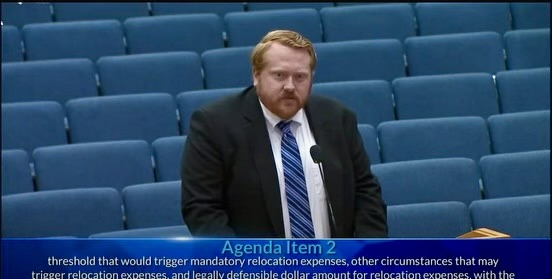LA County Supervisors Unanimously Move to Explore New Small Business Lease Rules

The Los Angeles County Board of Supervisors has unanimously passed a motion to analyze commercial rents in the county.
Its motion would also explore new regulations for those who lease to small businesses and non-profits.
This motion is a first step toward more interference in commercial leasing. And it will further burden an industry that is still trying to recover.
The Policy
The motion from Supervisors Mitchell and Solis stated purpose is to reduce displacement and gentrification from the loss of small businesses. It takes inspiration from Senator Menjivar's SB 1103.
Keeping small businesses in LA County is a laudable goal, but this motion would likely do the opposite.
By adding new regulations around leasing to small businesses, already a tenant type associated with greater risk, property owners will be less likely to want to lease to them.
In summary, the motion would:
- Authorize the Department of Economic Opportunity (DEO) to contract a consultant for an economic analysis of commercial rents and recommend a tenant relocation assistance policy.
- Direct the Department of Economic Opportunity and County Counsel to collaborate with non-profit and small business organizations to develop a 'fair' model lease language.
- Require that County Counsel and DEO report within 90 days on possible legal protections for small commercial tenants during emergencies and provide recommended ordinance language.
- Direct County Counsel and the Department of Public Health to report within 90 days on enforceable health and safety standards for commercial tenancies and recommend a proactive enforcement plan.
During the proceeding, Supervisor Barger raised the concerns in our letter with the Director of Economic Opportunity, specifically about the harm these policies could have on small businesses.
The director replied, "all commercial stakeholders would be engaged as part of our economic analysis."
The motion passed unanimously.
How It Impacts You
The motion is only the first step. It directs staff to bring back a report with recommendations.
It is at that point that we will see more specific policy proposals.
However, even as currently suggested, we should be very concerned by this motion.
This motion mirrors what is being attempted at the state level with SB 1103. Only worse.
The requirement to provide relocation expenses is the most concerning element of this proposal.
To require property owners to provide this kind of support when rents reach a certain threshold is unreasonable and financially unsustainable.
It will likely make it riskier to lease to small businesses and non-profits.
Under this new framework, we do not have a definition of a small business.
The other potential regulations open the door to new rules and requirements that property managers will have to comply with, further complicating an already challenging job.
At the end of the day, this is more interference in what is a business-to-business relationship and a misapplication of residential tenant rules to commercial tenants.
It's a failure to understand the nuanced differences between the two.
Advocating for You
We still have the opportunity to engage and shape what the report says.
Our Director of Government and Public Affairs, Blake Perez, attended the meeting in person to provide our opposition.
Members also voiced their opposition directly using our new one-click advocacy tool from VoterVoice. (A special thank you to those members who participated).
We also submitted a more detailed letter of opposition, along with other allies in the industry.
After we provided our testimony, a member of Supervisor Mitchell's staff approached Blake to indicate they would engage with BOMA and other commercial property groups as the report was developed.
She made it clear, however, that they would still be moving ahead, despite the concerns expressed. Given those parameters, we will do what we can to limit the damage this motion could cause.
We thank our partners in the fight, including NAIOP SoCal, BizFed, and CBPA. This is only the first engagement on this issue, and there will be many more.
Stay connected on this issue and others with BOMA on the Frontline. And be ready to act when the next call to action comes!

